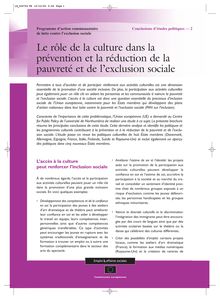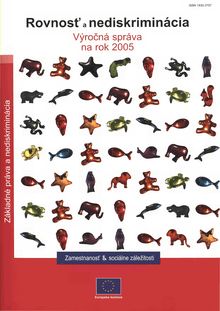
Policy measures to ensure access to decent housing for migrants and ethnic minorities
8
pages
English
Documents
Obtenez un accès à la bibliothèque pour le consulter en ligne En savoir plus
Découvre YouScribe en t'inscrivant gratuitement
Découvre YouScribe en t'inscrivant gratuitement
8
pages
English
Documents
Obtenez un accès à la bibliothèque pour le consulter en ligne En savoir plus
Nombre de lectures
27
Langue
English
Target audience: Specialised/Technical
Nombre de lectures
27
Langue
English





